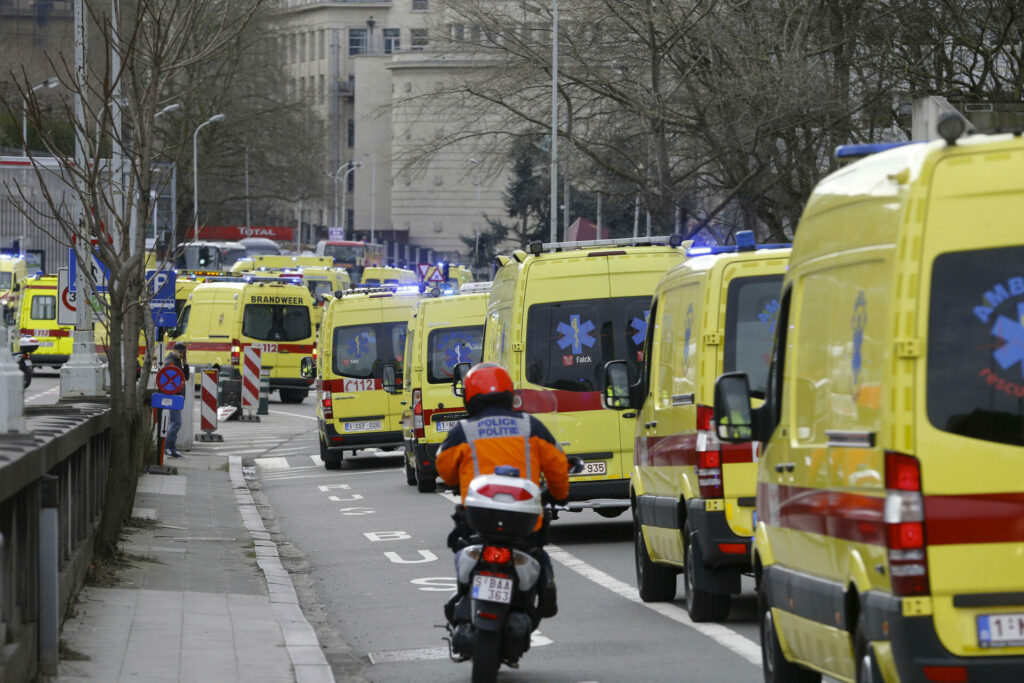While a modernisation of Beglium's Road Code aimed to make sirens and flashing lights mandatory for emergency vehicles in urgent interventions from 1 February, that rule has now been suspended, said Federal Mobility Minister Georges Gilkinet.
Police cars, ambulances and fire engines currently only have to turn on their sirens when they drive through a red light or to ensure that other road users give way. In other cases, their blue flashing lights are sufficient.
The updated Road Code aimed to change this, making both sirens and flashing lights mandatory at all times during urgent interventions. However, both emergency service workers and mayors were unhappy with the amendment, Belga News Agency reports.
They argued that an ambulance driving through a residential area with sirens blaring at 03:00 would wake up the entire neighbourhood, and that police sirens would warn criminals when the authorities are on their way to the scene of a crime, for example.
"It was never the intention to force the emergency services to systematically use their sirens and flashing lights in an emergency call," Gilkinet said on Wednesday, when signing a Royal Decree confirming that nothing would change for the time being.
"At the same time, it is also necessary to clarify the rules when, for example, an emergency vehicle does not respect the priority rules or drives against the direction of travel," he said. "The amendment to the Road Code casts doubt on this. The aim is to find a balance between a fast intervention and road safety."
Related News
- Belgium introduces new traffic rules and signs from autumn 2025: What changes?
- Different speed limits, test requirements and signs: Belgium's fragmented new Road Code
- Emergency vehicle sirens in Brussels to be made quieter
This requires good coordination with the services involved, in particular with the police, fire brigade and ambulance services, he said. "The decision that I signed today must allow us to take the necessary time for this consultation."
In Brussels, emergency vehicle sirens will also become much quieter next year as they will no longer be allowed to exceed noise levels of 100 decibels, or 90 decibels at night (between 22:00 and 07:00) to combat noise pollution.

